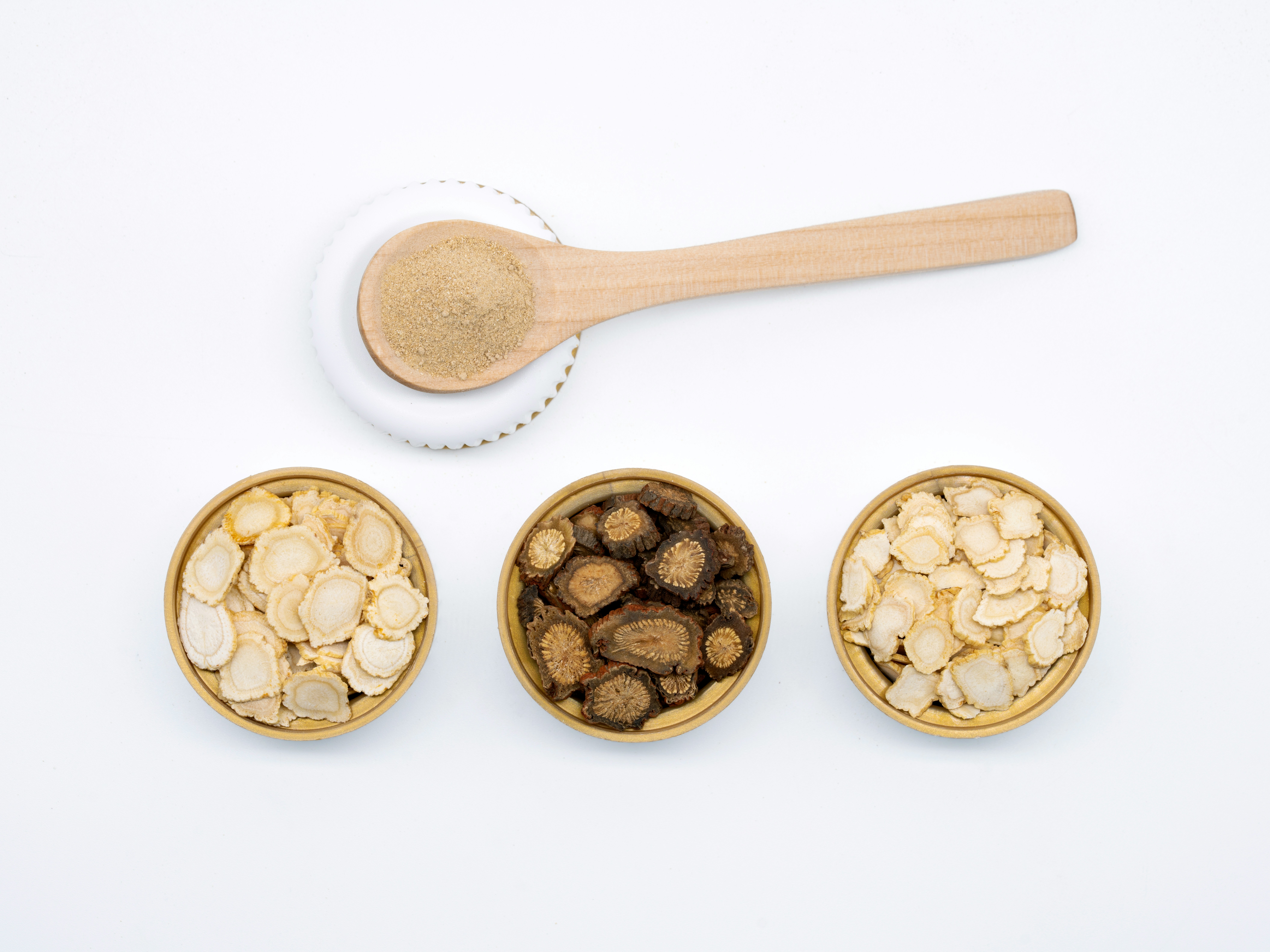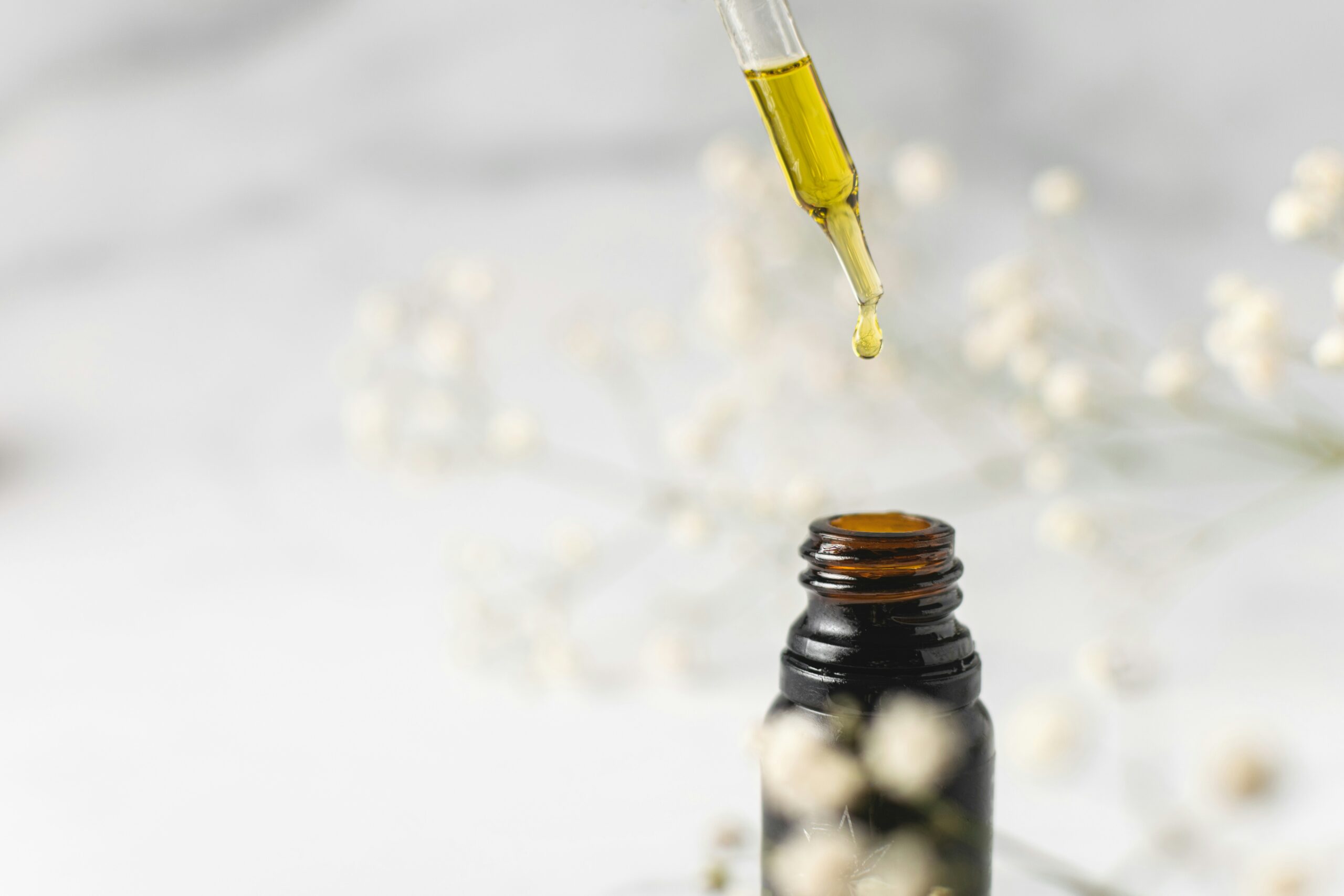Ginseng is a plant that has been used in Chinese medicine for thousands of years. The plant is an adaptogen, as it positively affects the human body. The health benefits of ginseng are currently still being used to support medical treatment. Due to the plant's multidirectional use, the product is mainly obtained from cultivation, while it is rarely found in natural sites. The most significant quantities of ginseng are cultivated in China and other Asian countries. There are several varieties of ginseng, which may differ in the properties and appearance of the plant.
Ginseng is a long-lived plant, meaning that once planted, it can remain in position for many years. This species's vines, shrubs, and trees have characteristic woody stems. Medicinal uses are made of the root, which is oblong and can come in a variety of colors. Ginseng root contains a wide variety of substances that benefit health. It exhibits many therapeutic properties and is one of Asia's most highly regarded medicinal plants. However, like any other product, ginseng can cause side effects. Find out more about ginseng.

Ginseng has been described in many scientific studies that have indicated its uses. The plant is characterized by various properties that can help treat many diseases. Herbal medicines based on ginseng are currently available. This herb from the Araliaceae family![]() contains substances and compounds that make ginseng a source of longevity, physical strength, and immunity. The main compounds contributing to ginseng's remarkable properties are ginsenosides
contains substances and compounds that make ginseng a source of longevity, physical strength, and immunity. The main compounds contributing to ginseng's remarkable properties are ginsenosides![]() , categorized as saponins. The health benefits of ginseng include:
, categorized as saponins. The health benefits of ginseng include:
Ginseng is known for its antioxidant properties. Scientific research has identified bioactive components in ginseng that may be associated with these properties. The antioxidant effect is demonstrated primarily by antioxidants contained in ginseng. In addition, we find ginsenosides, which are classified as saponins, i.e., sugars extracted from plants. Ginsosides are compounds that have a steroidal structure. As a result, they exhibit pharmacological activity. In addition to their antioxidant activity, they are characterized by antibacterial![]() , antifungal
, antifungal![]() , and antiviral
, and antiviral![]() activities. Therefore, they have therapeutic potential against various diseases.
activities. Therefore, they have therapeutic potential against various diseases.
Ginseng also has anti-inflammatory activity, for which ginsenosides are also responsible. Scientific studies on ginseng and its anti-inflammatory properties have shown that patients who took the plant became ill less frequently over an extended period, and the rate was high. Ginseng has many valuable components that modulate immunity, thus protecting against various health problems. In addition, its antimicrobial properties protect against multiple pathogens that can cause inflammation.
Ginseng also has potential neuromodulatory effects, affecting the nervous system. The plant has become a popular supplement for neurodegenerative diseases such as Alzheimer's disease![]() . The neuromodulatory properties are also due to ginsenosides, which exhibit neurotrophic and neuroprotective effects. The substances prevent neuronal degeneration and positively affect memory and learning. Ginsenosides increase receptor density in the brain and neurotransmitter levels.
. The neuromodulatory properties are also due to ginsenosides, which exhibit neurotrophic and neuroprotective effects. The substances prevent neuronal degeneration and positively affect memory and learning. Ginsenosides increase receptor density in the brain and neurotransmitter levels.

According to some studies, ginseng also exhibits antihypertensive properties, lowering blood pressure. Blood pressure values should be monitored regularly, as neglecting this aspect can lead to the late diagnosis of hypertension and the appearance of complications affecting various organs. The treatment of hypertension relies on lifestyle modification, and the properties of ginseng can act as a supportive factor in this case.
The bioactive components of ginseng may also protect against cardiovascular diseases. Such diseases include many conditions involving the heart or blood vessels and are a severe problem worldwide. Ginseng contains compounds that stimulate nitric oxide production, thereby increasing blood circulation. Due to this mechanism, ginseng has cardioprotective properties. In addition, ginseng helps regulate lipid profiles, meaning that it affects cholesterol levels![]() . Again, ginsenosides, which improve heart function, are effective here. Studies have also noted that ginseng has an anticoagulant effect.
. Again, ginsenosides, which improve heart function, are effective here. Studies have also noted that ginseng has an anticoagulant effect.
Further benefits we can derive from ginsenosides are the anti-cancer properties of ginseng. Specialists consider the phytochemicals that come from the plant to be helpful in the supportive treatment of various types of cancer. Ginseng has unique properties that can aid in the fight against cancer. Indeed, ginsenosides can inhibit the viability of cancer and reduce its invasiveness. They also reduce the possibility of metastasis![]() . Ginseng can support the treatment of various cancers; its effects have been noted in skin, prostate, colon cancers, and leukemia, among others. In addition to this, ginseng has antioxidant effects, which can further support treatment.
. Ginseng can support the treatment of various cancers; its effects have been noted in skin, prostate, colon cancers, and leukemia, among others. In addition to this, ginseng has antioxidant effects, which can further support treatment.

Another benefit of ginseng is its anti-diabetic effect. Diabetes is associated with problems in the body's ability to process glucose. In Asian countries, ginseng is often used to treat various types of diabetes. Ginseng extract can lower fasting blood sugar. The mechanism is that ginsenosides can stimulate insulin secretion. Thus, the effectiveness of ginseng lies in its ability to regulate glucose and insulin.
Obese people can also benefit from the therapeutic properties of ginseng. In recent times, the popularity of alternative treatments for obesity has increased, and patients are looking for natural ways with a low risk of side effects. Research on ginseng has shown that it can also effectively treat obesity problems. It has been noted that the plant has an anti-obesogenic impact![]() , although the exact mechanism still needs to be clarified. Experts suggest that ginsenosides also induce the action. Additionally, ginseng may reduce the risk of complications of obesity, which include diseases such as diabetes and hypertension.
, although the exact mechanism still needs to be clarified. Experts suggest that ginsenosides also induce the action. Additionally, ginseng may reduce the risk of complications of obesity, which include diseases such as diabetes and hypertension.
Ginseng may also increase sexual energy. An herbal ginseng-based supplement helps to increase sexual stamina. Ginsenosides make ginseng have an anti-fatigue effect. The process involves improving energy metabolism and suppressing oxidative stress in muscles. Ginseng is, therefore, used in cases such as erectile dysfunction![]() . The plant also affects women. In both sexes, ginseng increases sex drive and sexual arousal. In addition, the herb can improve sperm quality, which affects fertility. Many people turn to ginseng preparations for increased sexual satisfaction.
. The plant also affects women. In both sexes, ginseng increases sex drive and sexual arousal. In addition, the herb can improve sperm quality, which affects fertility. Many people turn to ginseng preparations for increased sexual satisfaction.

Ginseng is a plant with many bioactive components. The effectiveness of ginseng and its multifaceted properties are mainly attributed to saponins, especially ginsenosides. However, their mechanism must be better understood, as the constituents have diverse chemical structures. In addition to the described ginsenosides, ginseng also has:
Ginseng contains plant polysaccharides. Polysaccharides are a group of carbohydrates that play several roles in the body's functioning processes. Due to their properties, polysaccharides are readily used in the pharmaceutical, cosmetic, or food industries. They are a group of heterogeneous organic compounds that differ in structure, properties, and functions. Research suggests that the ginsenosides and polysaccharides of ginseng may have an immunoregulatory effect on the body.
The properties of essential oils depend on the plant from which they are extracted. Consequently, they may exhibit different types of action. Ginseng's essential oils can be helpful for dry skin and in the prevention of wrinkles. They can also soothe skin inflammation.

Antioxidants are ginseng substances that protect the body against cancer. Their additional action is to slow down the aging process. Ginseng has an antioxidant effect, as it has components that inhibit oxidation reactions occurring at the cellular level. If too many free radicals exist in the body, patients are more susceptible to developing diseases. Antioxidants, on the other hand, block the formation of free radicals.
Peptides are organic chemical compounds of amino acids linked together by peptide bonds. Based on their action, we can divide bioactive peptides into several groups. Due to their broad spectrum of effects, manufacturers readily use bioactive peptides to enrich foods. Although bioactive peptides have only recently been discovered, they are the target of research by many scientists. They are seen as having great potential, especially regarding their health-promoting effects.
The amino acids in ginseng are the building blocks of the human body and play an important role. Cell function would be impossible without them. They are responsible for the hormonal balance of the entire body. They are also the building blocks of cells and DNA.
Ginseng also contains vitamins C, E, B1, and B2, as well as minerals phosphorus, potassium, calcium, magnesium, iron, manganese, zinc, and copper. These vitamins and minerals are found in the plant's root, from which various products and preparations are made.

Ginseng is used in dietary supplements, medicine, and agricultural products. The use of the herb for medicinal and nutritional purposes is becoming increasingly popular in all parts of the world. Ginseng can be used orally. Ginseng-based tablets and supplements can be found on the market. In addition, ginseng is available in the form of infusions. You can purchase ginseng tea if you want to realize its health-promoting potential. Tea in the form of flower buds shows even higher levels of healthful components than the root of the plant.
Various root forms of ginseng are also available on the market. Ginseng root is subjected to a special preparation, usually dried or steamed. The recommended dose of ginseng in dry root is 0.5 – 2 g![]() . The dosage of ginseng extract is 200 – 600 mg
. The dosage of ginseng extract is 200 – 600 mg![]() . When preparing ginseng or consuming ginseng-based products, always follow the instructions on the packaging. If in doubt, it is a good idea to consult your doctor about your new dietary options.
. When preparing ginseng or consuming ginseng-based products, always follow the instructions on the packaging. If in doubt, it is a good idea to consult your doctor about your new dietary options.
Ginseng is considered a relatively safe product with little harm to the body. However, as with any other substance, it is worth taking every precaution. Ginseng is a valuable product with health benefits, but not everyone can use it. One should also be wary of the risk of ginseng side effects, including headaches and blood pressure changes. Like other oral products, ginseng can cause diarrhea and irritation when applied to the skin. Vaginal bleeding may also occur in women. In addition, the daily dosage of ginseng should also be observed, as exceeding the dose may increase the risk of side effects.
Ginseng is a generally well-studied herbal medicine. However, the number of studies on the plant's toxicity still needs to be increased. Abuse and inappropriate use of ginseng can be dangerous. Properly used ginseng can also show potential toxicity in some cases. Cases of ginseng toxicity have included both mental and physical conditions due to toxic effects; women should not consume ginseng during the first trimester of pregnancy and lactation. Further studies are required to determine the safety profile of ginseng.

Special precautions should be taken when combining ginseng with medicines. Ginseng may affect the effects of some medications, so herbal supplements should always be discussed with a doctor. Ginseng may interact with drugs such as HIV medications![]() , antihypertensive drugs
, antihypertensive drugs![]() , and antidepressants
, and antidepressants![]() . The plant may reduce the effect of these drugs, which may affect the treatment's effect.
. The plant may reduce the effect of these drugs, which may affect the treatment's effect.
The health benefits of ginseng are still being used today to support healing. The root contains various bioactive substances and is used for medicinal purposes. The main compounds contributing to ginseng's remarkable properties are ginsenosides, categorized as saponins. Ginseng exhibits a broad spectrum of health properties, helping to treat various diseases such as cancer and inflammation.
However, like any other product, ginseng can cause side effects. The toxicity of ginseng requires research. If you wish to use ginseng as a supplement, consult your doctor first. Improper use of ginseng can cause symptoms. It is also dangerous to combine certain medicines with ginseng.